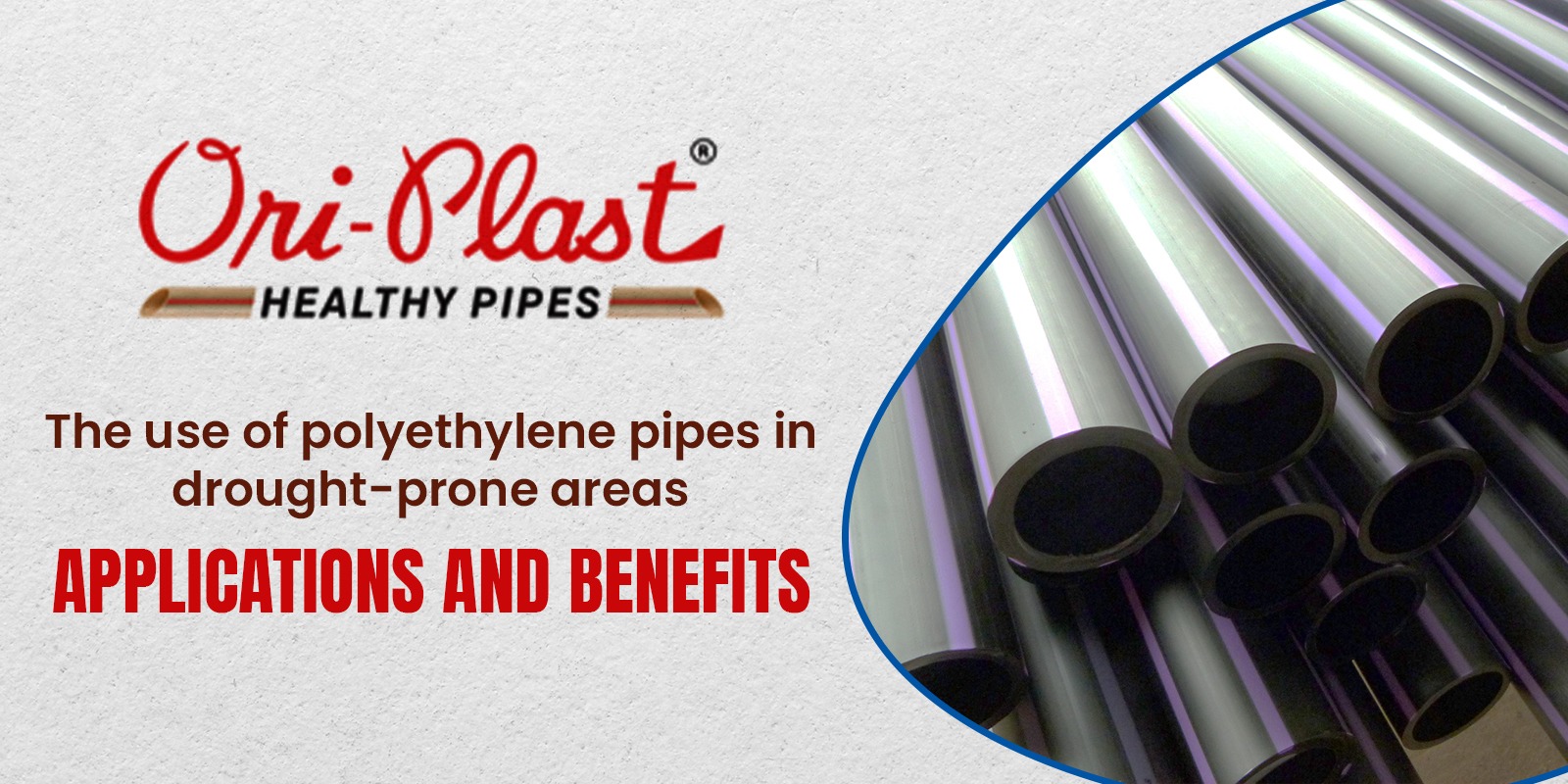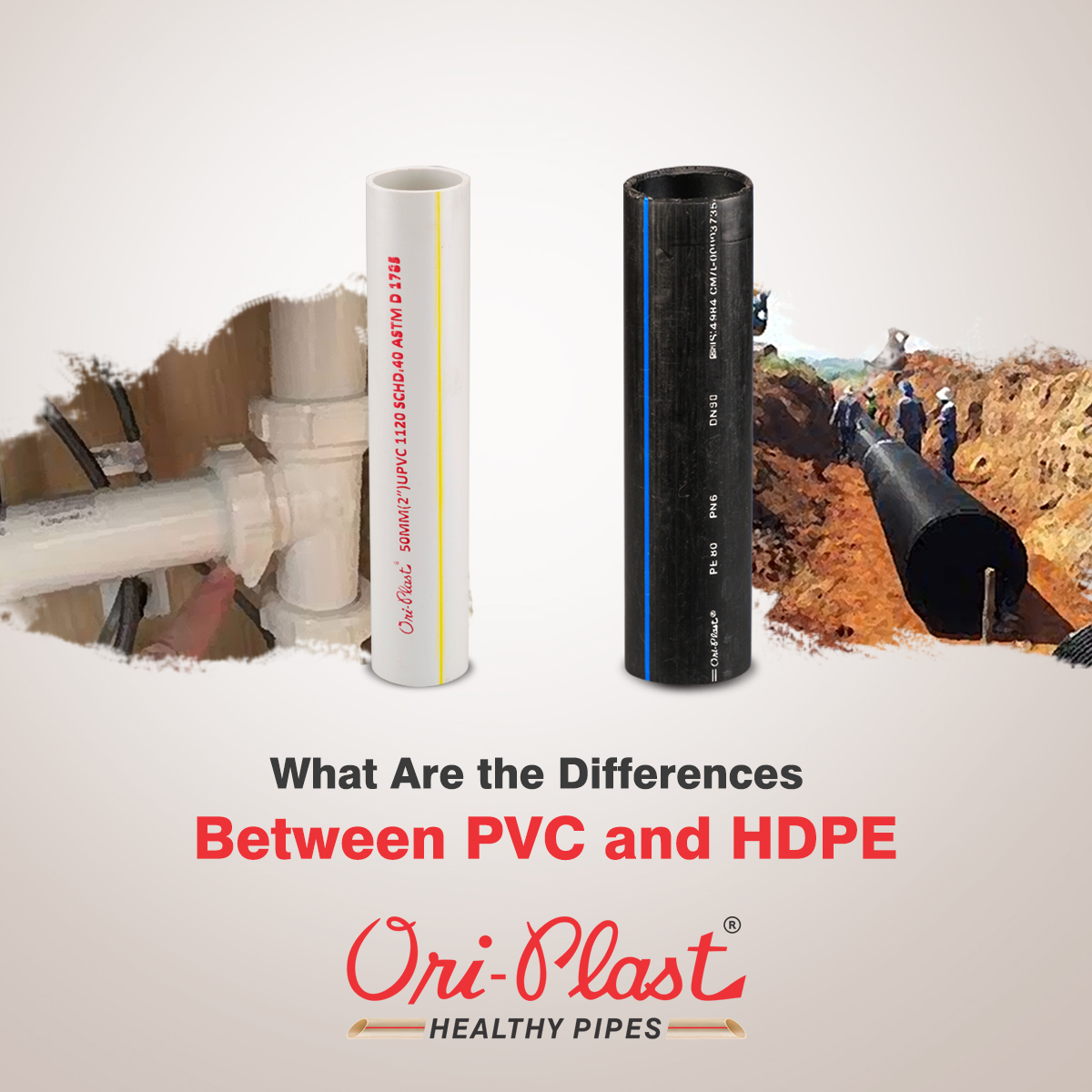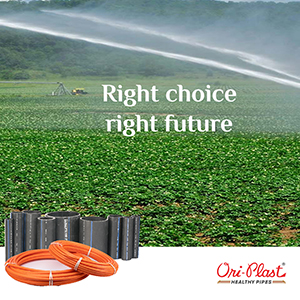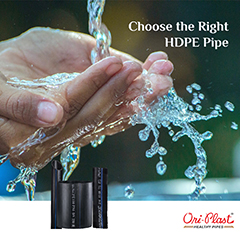Drought is a persistent and increasingly common problem in many regions around the world. It has far-reaching impacts on agriculture, industry, and communities, affecting everything from food production to access to clean drinking water. In these areas, effective water management and conservation are crucial to ensure the continued availability of this precious resource.
Polyethylene pipes have emerged as a leading solution to help address water management issues in drought-prone areas. In this article, we'll explore the applications and benefits of polyethylene pipes and how they can help improve water management in areas with water scarcity.
Overview of Polyethylene Pipes
Polyethylene pipes are made of high-density polyethylene (HDPE), a durable and flexible plastic material that is resistant to corrosion, abrasion, and chemical damage. They are used in a variety of applications, including water supply, gas transportation, and sewage systems.
Advantages of Using Polyethylene Pipes Over Other Types of Pipes
Polyethylene pipes have several advantages over other types of pipes. Firstly, they are lightweight and easy to transport, making them an ideal choice for remote and hard-to-reach areas. Additionally, they are flexible and can be bent without breaking, which makes them easier to install and less prone to leaks. Polyethylene pipes are also resistant to environmental factors like UV rays, weathering, and erosion, which can cause other types of pipes to deteriorate over time.
Characteristics of Polyethylene Pipes That Make Them Ideal for Drought-Prone Areas
Polyethylene pipes are particularly well-suited for use in drought-prone areas because of their ability to withstand harsh environmental conditions. They are resistant to extreme temperatures, which makes them ideal for use in regions where temperatures can fluctuate rapidly. Additionally, they are corrosion-resistant, which makes them ideal for use in areas with poor water quality. They are also able to withstand high-pressure water flows, which is essential in areas where water is scarce and every drop counts.
Applications of Polyethylene Pipes in Drought-Prone Areas
Polyethylene pipes have a wide range of applications in areas affected by water scarcity and drought. Here are some of the most common uses of polyethylene pipes in drought-prone areas:
Use of Polyethylene Pipes in Irrigation Systems
Polyethylene pipes are commonly used in irrigation systems to transport water to crops and other plants. They are ideal for this purpose because they are able to withstand high-pressure water flows and are resistant to the corrosive effects of fertilizers and other chemicals commonly used in agriculture.
Drinking Water Supply Systems
Polyethylene pipes are widely used in drinking water supply systems because they are resistant to corrosion and do not leach harmful chemicals into the water. They are also lightweight and easy to install, which makes them an ideal choice for remote and hard-to-reach areas.
Wastewater Treatment and Management Systems
Polyethylene pipes are commonly used in wastewater treatment and management systems because they are resistant to the corrosive effects of sewage and other waste materials. They are also easy to install and maintain, which helps to reduce maintenance costs and downtime.
Industrial and Commercial Applications
Polyethylene pipes are used in a wide range of industrial and commercial applications, including oil and gas transportation, chemical processing, and mining. They are ideal for these applications because they are resistant to chemical damage and able to withstand high-pressure water and fluid flows.
Benefits of Using Polyethylene Pipes in Drought-Prone Areas
The use of polyethylene pipes in areas affected by water scarcity and drought offers several benefits. Here are some of the most significant advantages:
Increased Water Conservation and Management
Polyethylene pipes enable more efficient and effective water conservation and management practices. By minimizing water loss due to leaks and breaks, polyethylene pipes help to ensure that every drop of water is used efficiently.
Improved System Efficiency and Reduced Water Loss
Polyethylene pipes offer better system efficiency and reduced water loss compared to other types of pipes. They are less likely to leak or break, which helps to ensure that water is delivered where it is needed without wasting any.
Lower Maintenance Costs and Longer Lifespan
Polyethylene pipes are easy to install and maintain, which helps to reduce maintenance costs and downtime. They are also durable and have a longer lifespan compared to other types of pipes, which makes them a cost-effective option in the long run.
Environmental Benefits
The use of polyethylene pipes in drought-prone areas also offers several environmental benefits. Polyethylene is a recyclable material, which means that it can be reused and repurposed instead of ending up in landfills. Additionally, polyethylene pipes do not contain any harmful chemicals that could leach into the environment, making them a safer option for both human health and the environment.
Case Studies and Examples
Polyethylene pipes have been used successfully in many real-world applications in drought-prone areas. Here are some examples of successful applications of polyethylene pipes:
The California Department of Water Resources installed over 25 miles of polyethylene pipes in the Coachella Valley to replace aging pipelines that were leaking and wasting water. The new pipes helped to reduce water loss and improve system efficiency.
In South Africa, the Limpopo Province installed over 500 miles of polyethylene pipes to transport water to rural communities that were affected by drought. The new pipes helped to improve water conservation and management practices, and also reduced the risk of waterborne diseases.
In Australia, the Murray-Darling Basin Authority installed over 600 miles of polyethylene pipes to replace aging pipelines that were prone to leaks and breaks. The new pipes helped to reduce water loss and improve water conservation and management practices in the area.
Professionals in the field have also reported success stories and the benefits of using polyethylene pipes in drought-prone areas. According to a report by the Environmental Protection Agency, polyethylene pipes are highly resistant to corrosion and environmental stress cracking, making them an ideal choice for use in harsh environments. Additionally, a study by the American Water Works Association found that polyethylene pipes have a lower failure rate compared to other types of pipes, which translates into reduced maintenance costs and downtime. These success stories and testimonials highlight the practical benefits of using polyethylene pipes in drought-prone areas.
Conclusion
Polyethylene pipes offer several benefits for water management systems in drought-prone areas. They are durable, easy to install and maintain, and offer improved system efficiency and reduced water loss. Polyethylene pipes have been successfully used in real-world applications around the world, helping to improve water conservation and management practices and reduce the risk of water shortages.
In conclusion, the use of polyethylene pipes is an effective solution for water management systems in drought-prone areas. By implementing polyethylene pipes in irrigation systems, drinking water supply systems, wastewater treatment and management systems, and industrial and commercial applications, we can help to ensure that every drop of water is used efficiently and effectively.
We encourage further exploration and implementation of polyethylene pipes in water management systems. By taking advantage of the benefits that polyethylene pipes offer, we can help to address the challenges of water scarcity and drought and build a more sustainable future.
Visit Our Facebook Page Ori-Plast Limited For more information.




